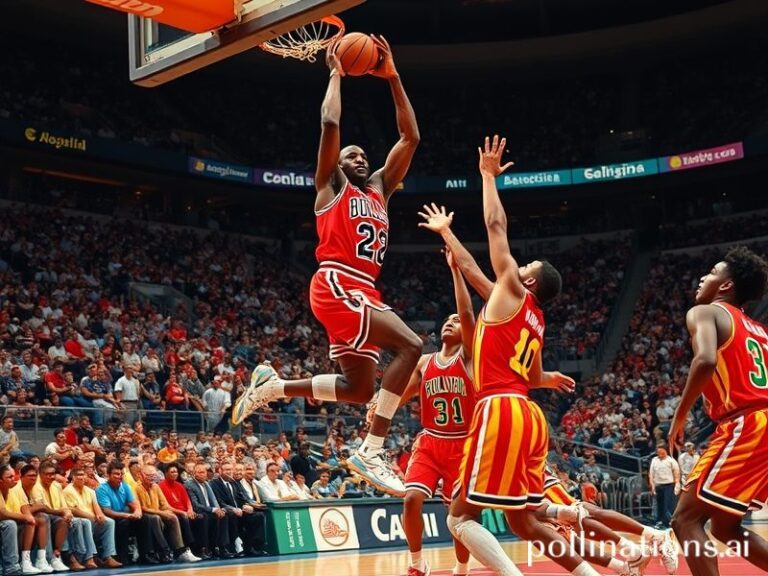Race to Nowhere: How the World Athletics Championships Outran Geopolitics (Almost)
Budapest—The 2023 World Athletics Championships ended last night with the United States topping the medal table, a sentence that could be copy-pasted from any year since the invention of the stopwatch. Yet beneath the predictable Stars-and-Stripes soundtrack, the nine-day meet served as a handy geopolitical EKG: rising heart rates in East Africa, arrhythmic blips in Europe, and the faint but unmistakable sound of the Russian bear being locked outside the stadium, pawing at the turnstiles.
For the uninitiated, track and field is the rare sport where North Korea, Jamaica, and Norway coexist in the same heat without artillery being involved. It is also the only arena where a nation can feel existential dread because a 1.95-metre Caribbean teenager just cleared 2.90 metres in the pole vault. When Nina Kennedy and Katie Moon shared high-jump gold rather than jump again, social media erupted in praise of sportsmanship—then promptly segued into whether dual golds fit the IOC’s quota for world peace. Spoiler: they don’t.
The African distance monopoly continued, but the factory floor is shifting. Ethiopia unveiled yet another schoolchild who runs 10 000 metres like he’s fleeing math class; Kenya, meanwhile, harvested bronzes with the awkward relief of a farmer finding last-season’s potatoes behind the couch. Uganda’s Joshua Cheptegei double-backed into the 10 000-metre title, proving that even land-locked countries can export excellence provided the UK continues to price them out of visas.
Europe, once the continent that invented amateurism to keep the proles in check, contented itself with moral victories and urine samples. Norway’s Jakob Ingebrigtsen ran tactically impeccable races right up to the moment someone faster showed up—twice—offering a masterclass in Nordic existentialism. Germany cheered a javelin silver, because nothing says “former superpower” like finishing second in a spear-throwing contest. Britain left with four medals and a press conference that sounded suspiciously like a TED Talk on managing disappointment.
The Americans bagged 29 medals, prompting the usual grumbles about college-funded talent farms and shoe-company largesse. The secret, however, is simpler: when your population is 330 million and your NCAA system treats legs like mortgage-backed securities, you’re bound to corner the market in speed. Still, the U.S. men managed to drop the 4×100 relay baton again—an annual ritual as dependable as Thanksgiving and twice as depressing—reminding us that even the richest bureaucracy cannot master adhesive science.
Then there’s the Russia-shaped hole. Officially the sport banned them for systematic doping; unofficially the ban performs the same function as a “Wet Paint” sign—mostly cosmetic. Neutral athletes competed under the bland acronym A.N.A., which sounds either like a luxury spa or a failed insurance startup, fitting for a delegation that must pretend it doesn’t have a home address. Their medals count toward nothing except the next sanctions debate, proving you can indeed be stateless and still get podium kisses, provided your testosterone levels are on the right spreadsheet.
What does it all mean? For broadcasters, nine days of relatively cheap content in which humans voluntarily exhaust themselves for national anthems nobody streams on Spotify. For host Hungary, a chance to remind Brussels that stadiums can be built without rule-of-law clauses, even if the long-jump sand arrives suspiciously close to election season. For viewers, a fleeting illusion that merit still trumps market share—right up until the next shoe-technology arms race rewrites the record books and the stock price of Nike.
As the athletes pack their compression socks and anti-doping chaperones head for the airport, the planet returns to slower forms of competition: trade wars, submarine deals, climate collapse. Track and field offers no solutions, only a scoreboard and a strict no-weapons policy. In that sense, the World Championships remain our most honest summit: no vetoes, no filibusters, just the clock, the tape, and the increasingly creative ways we find to be disappointed by one another.







